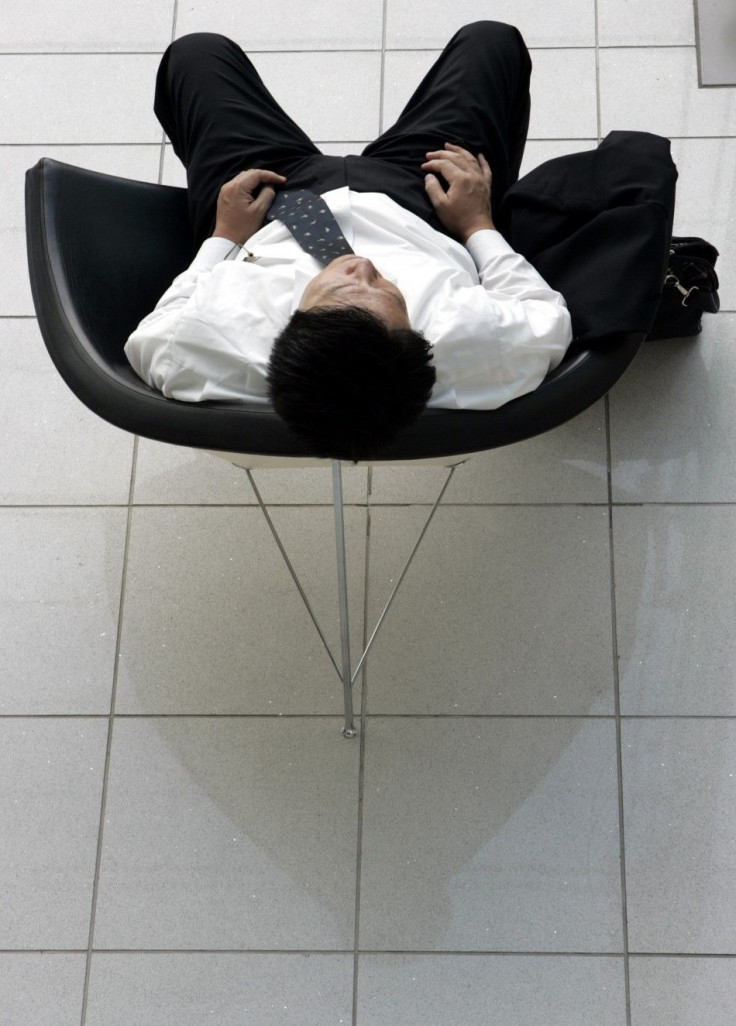Sitting Half The Day Raises Risk of Dying, Study

After a hard day at work, many people relax on the couch and unwind, but doing so could be deadly, according to a new study.
People who sit for 11 hours or more per day are at a 40 percent higher risk of dying over the next three years -- no matter how active they are otherwise, the study said.
Australian researchers tracked more than 220,000 people, age 45 and older. They found the amount of time people spent sitting down correlated directly with their mortality rate.
Researchers stressed, however, that the self-reported data in the study didn't prove sitting killed people, but instead suggested there was a strong link between inactivity and mortality.
The evidence on the detrimental health effects of prolonged sitting has been building over the last few years, Hidde van der Ploeg, study author and senior research fellow at the University of Sydney, told HealthDay.
The study stands out because of its large number of participants and the fact that it was one of the first that was able to look at total sitting time. Most of the evidence to date had been on the health risks of prolonged television viewing.
Even sitting for 8 hours a day means you are 15 percent more likely to die than people who only sit for 4 hours, according to the researchers.
Yes, you have to work, but when you go home it's so important you don't go back to sitting in front of the computer or television, Suzanne Steinbaum, a spokeswoman for the American Heart Association, who wasn't involved with the study, told HealthDay.
After the 8-hour mark, the risks go up exponentially, she noted. It's really about what you're doing in your leisure time and making the decision to move.
The researchers advocated that public health programs should include reductions in sitting time, not just increasing physical activity levels.
The journal Archives of Internal Medicine published the study on Monday.
Sitting for five less minutes per hour can make a huge difference, researchers said.
Technology makes it easy to be sedentary, so instead of texting or emailing a colleague, walk down a few cubicles and say, 'Hi, how are you?' David Freeman, chief of heart failure services at North Shore Plainview Hospital on Long Island, told WebMD. This is good face time and it's also good exercise.
Scott Kahan, director of the National Center for Weight and Wellness in Washington, told WebMD that any kind of exercise is good.
The key is to do something you like to do, whether it's sports, going to the gym, walking, or gardening, he said. If it is terribly unenjoyable, the likelihood of sustaining it is pretty low.
© Copyright IBTimes 2024. All rights reserved.











